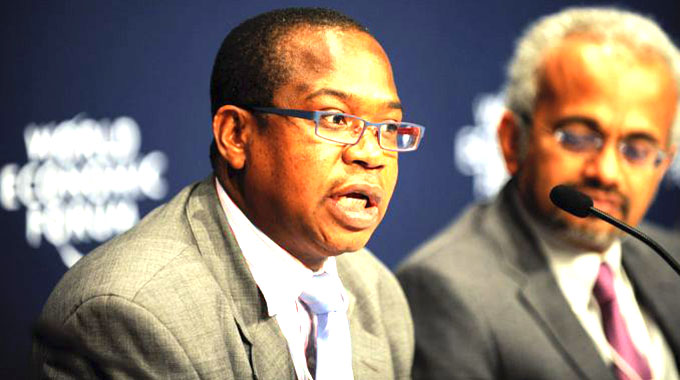EDITORIAL COMMENT : Mthuli’s call on pricing laudable

THE call by Finance and Economic Development Minister Professor Mthuli Ncube yesterday that industrialists and retailers should stop pegging their prices against the parallel market rate of foreign currency, but the interbank rate is laudable.
Prof Ncube’s call comes at a time when prices of most basic goods have in many instances been unjustifiably increased by both manufacturers and retailers, citing rising parallel market rates for forex.
This is despite the fact that some of the prices of goods, especially pharmaceuticals, were already pegged against the rate of 1:5 (USD to RTGS dollars), before the latest jump in parallel market rates.
The 2019 Monetary Policy Statement announced an interbank market for foreign currency, whose rate is determined by market forces.
The interbank rate started at 1:2,5, but had steadily risen to 1:3,2285 as of yesterday. While the interbank rate is lower than the parallel market rate which is at about 1:4,5, manufacturers claim they are having challenges accessing foreign exchange on the interbank market.
This comes amid reports that exporters, who are the holders of foreign currency that must be traded on the interbank market, continue to tightly hold on to their hard currency for speculative purposes.
This has led to claims by manufacturers and retailers that they are now turning to the parallel market for forex, hence the constant upward adjustment of prices when the parallel market rate changes.
Notably, prices of goods and services have continued on an upward trajectory while salaries have remained largely stagnant, putting most basic commodities beyond the reach of many.
But Prof Ncube told delegates during the International Business Conference in Bulawayo, which ran concurrently with the 60th edition of the Zimbabwe International Trade Fair (ZITF), that it was improper for businesses to peg prices based on parallel market rates.
He called on traders to stop engaging in “speculative pricing”, which is not informed by the obtaining macro-economic fundamentals, adding that profiteering was “bad economics”.
Continuous upward movement of prices has the potential effect to plunge the economy into an uncontrollable hyper-inflationary prices gallop reminiscent of the miserable decade to 2008.
In his independence message aired last week on State broadcaster ZBC, President Mnangagwa also strongly warned businesses against speculative pricing, which is not supported by fundamentals.
The Head of State correctly observed that unscrupulous businesses were continuously hiking prices to cushion themselves against expected loss of value, which is bad business practice. This is particularly the case given that the expectation of high inflation is itself a strong driver of unending inflation increases, a phenomenon in which no one would be able to emerge a winner.
As such, the Minister of Finance yesterday indicated that he preferred businesses to peg prices against the interbank rate, which relatively reflects the real value of the US dollar against RTGS dollar.
If prices were to be pegged in tandem with the interbank rate, consumers would get more value from their earnings, as opposed to the current situation where the pricing models are speculative.
Worth noting is also the fact that even those producers and retailers who incur very little or virtually no expense in foreign currency have also been part of the crusade of unjustifiably raising prices.
The loss of purchasing power of earned RTGS dollars has caused worker representatives to demand salary increments, which most companies, including those raising prices, cannot afford at the moment.
Government has marginally increased salaries for its employees, who constitute the bulk of the working population in this country, to cushion them from the incessant price increases.
However, both retailers and industrialists, who have increased prices, say they are unable to increase salaries due to low demand for goods and services.
Demand for goods and services, at the obtaining extortionate prices, has gone down considerably, impacting on traders’ revenues and consequently their ability to effect salary and/or wage increases for employees.
It would be worth realising that it will take huge sacrifices and unity of purpose by both Government and the private sector to work hand-in-glove towards rebuilding Zimbabwe to its former glory and even better prosperity.
As such, making Zimbabwe work again requires a strong sense of patriotism by everyone as reaching the Promised Land would only be achievable when everybody shares the pain in one way or the other.









Comments